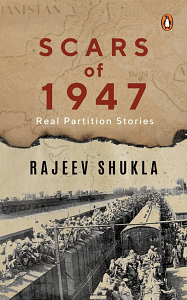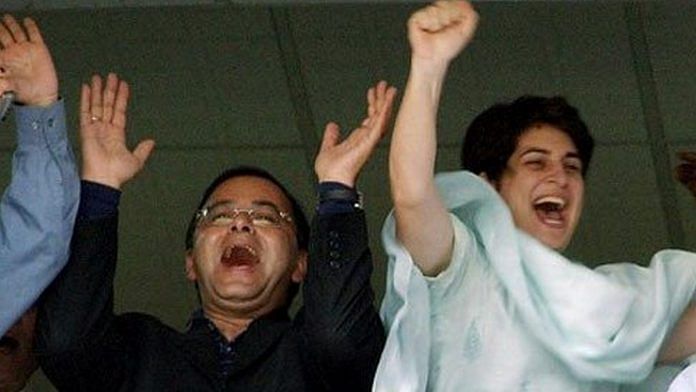The Pakistan Cricket Board was insisting that the Indian cricket team visit Pakistan for a series as in those days, the Pakistan Cricket Board always supported the Board of Cricket Council in India (BCCI) in International Cricket Council (ICC) matters. Jagmohan Dalmia, the then head of the BCCI, also wanted the Indian cricket team to visit Pakistan for a series. Meanwhile, the Ministry of Home Affairs in India was not in favour of the idea.
Apprehensive about the safety of the players following the terrorist attack on President Musharraf’s convoy in Pakistan, the ministry decided to intervene. At this time the Indian cricket team was on a tour of Australia. I would receive phone calls from many senior players requesting to cancel the Pakistan tour since their family members were worried for their safety. Our players clearly and justifiably pointed out that if there were loopholes in the security of General Musharraf, then it was very hard to rely on any other type of security. BCCI head Jagmohan Dalmia was quite upset about this incident but was not ready to back out of the series. He appointed me to get permission from the government for this series, keeping in mind the fact that the minister of home affairs, L.K. Advani, was not in favour of giving his consent.
Atal Bihari Vajpayee was serving as the head of the government then, with whom I was on good terms. I spoke directly to him and provided my point of view. I told him that there was a possibility that the series would help to reduce tension and build a strong relationship between the two nations. Vajpayee always dreamt of positive relations between India and Pakistan. With the support extended by Cabinet Minister Arun Jaitley, Foreign Affairs Minister Yashwant Sinha, along with the Principal Secretary to the Prime Minister Brajesh Mishra, I succeeded in convincing him. Sometime before that, I met President General Pervez Musharraf in Islamabad, who assured me that he would provide security equivalent to that of a president to the Indian cricket team. He said he would also reach out to the supporters of the Pakistani cricket team in the stadium and urge them to cheer for and welcome the Indian team with open arms.
The preparations for the India–Pakistan cricket series were in full swing. Dalmia monitored the progress daily. The Indian cricket team flew down to Delhi. Stalwarts like Sourav Ganguly, Sachin Tendulkar, Rahul Dravid and Anil Kumble were part of the team for the series. On the eve of their departure to Pakistan, I organized a meeting of home ministry officials with the entire cricket team at Taj Mansingh Hotel in Delhi to brief and reassure them about the security arrangements being adopted in Pakistan. The assurance that the team would be provided with adequate security was the first point in the meeting. The players were asked not to worry about their safety as it would be taken care of by the Pakistani government itself. Before flying to Pakistan, all the players were invited for tea at the prime minister’s residence, where Vajpayee told Sourav Ganguly, the then team captain, that his wish was to win the hearts of the Pakistani people and not only the matches through this tournament.
Also Read: Agyeya wanted to publish a Nehru-at-60 journal. Indian and global writers told him this
Initially, it was speculated that Prime Minister Vajpayee would himself visit Pakistan to attend a match. But later, Arun Jaitley came to Karachi instead. The prime minister’s principal secretary, Brajesh Mishra, along with Vajpayee’s son-in-law, Ranjan Bhattacharya, flew to Lahore as guests for another match. One fine day, I got an unexpected call from Priyanka Gandhi Vadra (daughter of Rajiv Gandhi and granddaughter of Indira Gandhi) that she, along with her brother Rahul Gandhi, would like to join us for a match in Karachi. I immediately informed the Pakistan Cricket Board about their arrival.
The very next day, I received a message from Pakistan’s prime minister, Zafarullah Khan Jamali, which stated that high-level security would be arranged for the members of the Gandhi family. A Pakistan Airlines aircraft equipped with first-class cabins was made to fly the Mumbai–Karachi route to bring over the Gandhis. When Rahul, Priyanka and her husband, Robert Vadra, along with my wife, Anurradha, and I landed at Karachi airport, we were very surprised to see the extensive security arrangements in place.
People had gathered in large numbers outside the airport in Karachi just to get a glimpse of the members of the Gandhi family. Shahryar Khan, who was serving as the chairman of the host cricket board, was present with his wife to receive us at the airport. To my amazement, the flow of traffic was blocked on the road to ensure smooth movement of all the vehicles in our convoy. Arrangements for our stay had been made at one of Karachi’s exclusive government guest houses that once used to be the residence of the former prime minister Liaquat Ali Khan. The guest house was meant to accommodate the top brass of the government like the president or the prime minister.
The match being played in Karachi turned out to be a typical suspense-thriller India–Pakistan match; everyone was stressed about the outcome. There was nail-biting excitement. Amidst this highly stressful situation, the Karachi police commissioner came to our box at the stadium and warned us about the possibility of some violence on the roads if the results spelt a loss for Pakistan. As a safety measure, he advised the immediate departure of the Gandhis and requested them to go back to the guest house. Priyanka opposed it. She along with Jaitley refused to go anywhere before the match was over. Ashish Nehra bowled the last over that resulted in India’s historic win in the match. Both Priyanka and Jaitley stood up in excitement and began to clap for India.
Also Read: ‘Shut up! Damn you! Go to hell’ – Ashok Kumar, the heartthrob who struggled with fame
All cameras turned their focus on the cheerful Priyanka as she came out of the VIP box and started celebrating in the general public stands. When Priyanka and Rahul wanted to meet the teams after the match, I conveyed the request to Sourav Ganguly. He immediately asked the teams to get dressed and both the teams clicked memorable photographs with them. To our amazement, on our way back to the guest house, rather than any sort of violence, people were waving at us happily and warmly. Another match was scheduled to be played in Lahore in a few days. I was all set to attend it. Gautam Singhania, the chairman and managing director of the Raymond Group, and Bollywood actor Suniel Shetty also joined us. The Indian audience in the stadium was warmly welcomed by the Pakistani nationals. Taxi drivers refused to charge fares from Team India supporters; shopkeepers were giving items to them free of cost. Such gestures were not even remotely imaginable till this time. The environment in both the countries was filled with warmth.
In the box with us was Dina Wadia, the daughter of Pakistan’s Quaid-e-Azam (‘Great Leader’), Muhammad Ali Jinnah. She was accompanied by her son, Nusli Wadia, and grandsons, Ness and Jahangir. The entire country was in awe of her and her uncanny resemblance to her father. This was her first visit after her father’s death in 1948 when she had come to pay her last tribute to the Quaid-e-Azam and had visited Jinnah’s mausoleum ‘Mazar-e-Quaid’, his final resting place, in Karachi. The visit of Quaid-e-Azam’s daughter was widely covered by the media across the country and became a historic event; it was a moment of great joy for everyone in Pakistan. The positive energy and support among the spectators of the matches showed that General Musharraf had succeeded in keeping his promise. Every boundary hit by an Indian batsman drew cheers from the whole crowd.
We were warmly welcomed by a band upon reaching the hotel Pearl Continental, where our team was staying. The players such as Tendulkar, Ganguly and Dravid met me every day and seemed happy. There was no fear of security lapses in their minds. They said they were not facing any problems or inconveniences and were glad the series had worked out. This series ended up playing a vital role in bridging the gap between the two nations.

This excerpt from ‘Scars of 1947: Real Partition Stories’ by Rajeev Shukla has been published with permission from Penguin Random House India.



